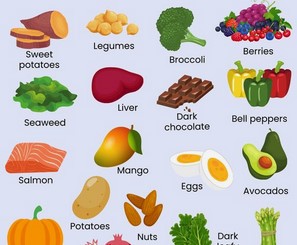Introduction:
The food industry is a vibrant and diverse field that offers a multitude of career opportunities for individuals passionate about food, nutrition, and culinary arts. Whether you aspire to become a chef, food scientist, nutritionist, or entrepreneur, embarking on a career in the food industry requires careful preparation and dedication. In this comprehensive guide, we’ll explore the essential steps to help you navigate the path to a fulfilling and successful career in the dynamic world of food.
- Define Your Passion and Goals:
Before diving into the intricacies of the food industry, take the time to reflect on your passions, interests, and career goals. Are you drawn to the creative artistry of cooking, the science behind food production, or the importance of nutrition and wellness? Clarifying your motivations will help you identify the specific areas of the food industry that align with your interests and aspirations. - Gain Education and Training:
A solid educational foundation is crucial for success in the food industry. Depending on your career goals, consider pursuing formal education and training in fields such as culinary arts, food science, nutrition, hospitality management, or business administration. Research accredited programs and institutions that offer relevant coursework, hands-on experience, and opportunities for internships or apprenticeships. - Acquire Hands-On Experience:
Hands-on experience is invaluable in the food industry, providing practical skills and insights that complement formal education. Seek out opportunities to gain real-world experience through internships, part-time jobs, volunteer work, or apprenticeships in professional kitchens, food manufacturing facilities, research laboratories, or culinary establishments. Embrace every opportunity to learn from experienced professionals and immerse yourself in the diverse aspects of the food industry. - Develop Culinary and Technical Skills:
Whether you aspire to become a chef, food scientist, or product developer, honing your culinary and technical skills is essential for success in the food industry. Practice cooking techniques, recipe development, food safety protocols, sensory evaluation, product formulation, and quality control measures. Stay informed about emerging trends, technologies, and innovations in the field, and continually seek opportunities to expand your knowledge and expertise. - Network and Build Relationships:
Networking is a vital component of career advancement in the food industry. Attend industry conferences, trade shows, workshops, and networking events to connect with professionals, mentors, and potential employers. Join professional organizations, culinary associations, or online communities related to your field of interest. Cultivate relationships with peers, mentors, and industry leaders who can offer guidance, support, and opportunities for collaboration or career advancement. - Stay Informed and Adapt:
The food industry is constantly evolving, driven by changing consumer preferences, technological advancements, and global trends. Stay informed about current events, market dynamics, regulatory requirements, and industry developments that impact your chosen field. Remain adaptable and open to learning new skills, embracing innovation, and adapting to emerging opportunities and challenges in the ever-evolving landscape of the food industry. - Pursue Continuous Learning and Growth:
A successful career in the food industry requires a commitment to lifelong learning and professional development. Take advantage of continuing education programs, workshops, certifications, and advanced training opportunities to deepen your knowledge, expand your skill set, and stay competitive in the marketplace. Embrace a growth mindset, seek feedback, and be proactive in pursuing opportunities for personal and professional growth throughout your career journey.
Conclusion:
Preparing for a career in the food industry requires passion, dedication, and a proactive approach to learning and growth. By defining your goals, acquiring relevant education and training, gaining hands-on experience, developing culinary and technical skills, networking, staying informed, and pursuing continuous learning, you can position yourself for success in this dynamic and rewarding field. Embrace the journey with enthusiasm, curiosity, and a commitment to excellence, and unlock the door to a fulfilling and impactful career in the world of food.
